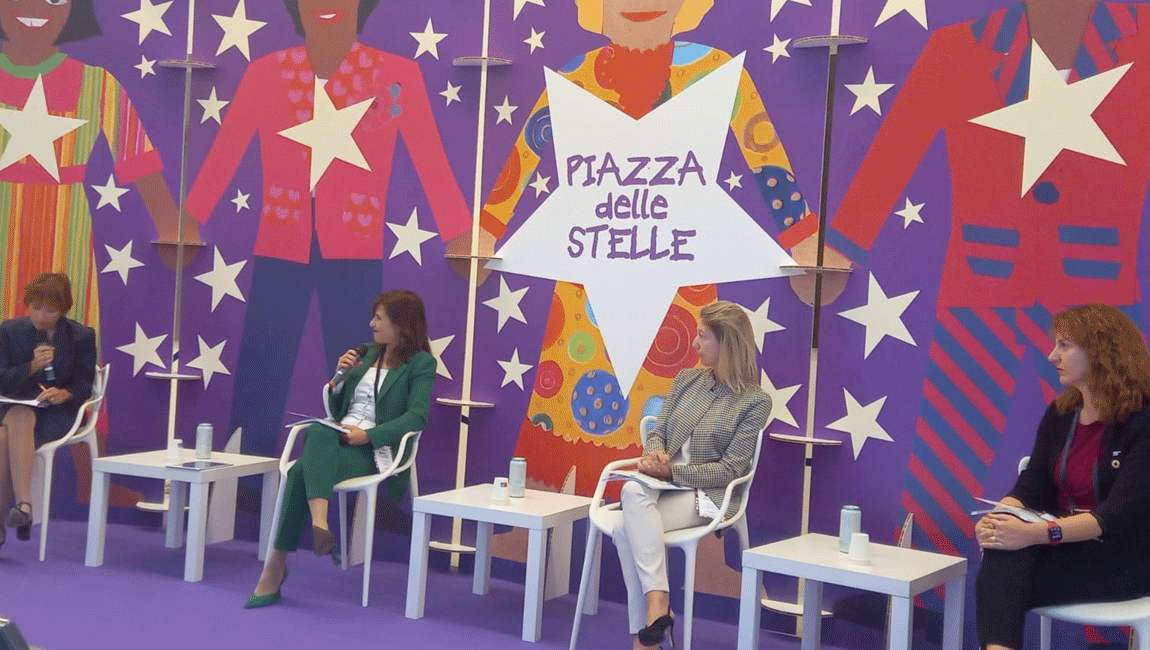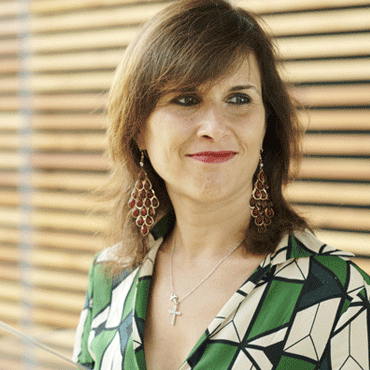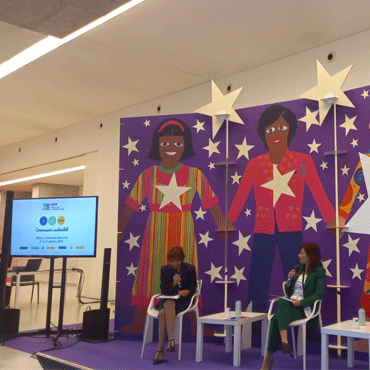Maria Cristina Bifulco, Chief Sustainability Officer and Group IR VP of Prysmian Group, attended the 10th edition of the Salone della CSR e dell'innovazione sociale in Milan, Italy's leading event dedicated to corporate social responsibility, to talk about sustainable supply chain management. The event was, in addition, an opportunity to officially present the position paper on companies' commitment to sustainable supply chain management - and in particular under the profiles of scope 3 emissions reduction, promotion and protection of human and labor rights, and management of negative externalities through circular solutions. The paper, the result of work being carried out by the UN Global Compact Italian Network since February 2022, was drafted by Prysmian Group together with a group of more than 30 member companies of the UN initiative that are particularly sensitive to and committed to the issue.
Maria Cristina Bifulco attends Milan CSR salon to talk about sustainable supply chain management



Prysmian Group adheres to the Global Compact, whose principles and spirit are reflected in the Group's culture, values and practices. ESG (Environmental, Social and Governance) values are deeply embedded in the Group's DNA, inspiring its strategic priorities and influencing its day-to-day behavior. As a leading group in the sector in which it operates, Prysmian leverages the values, Mission and Vision that guide its activities and that are integrated into the solutions and products it offers, thus pursuing its ambition to play the role of technological enabler in the energy transition and digitalization process of tomorrow's world.
Sustainable supply chain management, pursued by the Prysmian Group, thus involves analyzing the environmental, social and economic impacts of its activities and encourages good governance practices through life cycle analysis of goods and services. The goal of sustainable supply chain management is to create and improve the long-term social, environmental and economic value of the products and services produced for all stakeholders involved, with a view to a just transition.
Prysmian Group is committed to having and offering its customers a Conflict Free Supply Chain and aims to maintain an accurate database that allows it to keep track of mineral purchases, mitigating related risks as much as possible. To do this, Prysmian has implemented a multi-step process:
- Step 1: Identifying suppliers of 3TGs (Conflict Minerals, i.e., tin, tungsten, tantalum, and gold) in the Supply Chain: Beginning with the design of products where these materials are needed, Prysmian defines the list of suppliers to be involved in the analysis process. Of the four Conflict Minerals Prysmian uses only small quantities of tin.
- Step 2: Supplier companies are interviewed using the Conflict Minerals Reporting Template ("CMRT") designed and published by the Responsible Minerals Initiative (RMI).
- Step 3: Analysis of the responses received so as to trace the entire value chain, identifying and analyzing smelters used by Prysmian's suppliers. RMI created a mapping of tin smelters classified as "Compliant Smelters" (positively audited smelters), "Active Smelters" (audits in progress) or smelters not identified by RMI.

Prysmian recorded a 100 percent response rate from its global network of base metal suppliers, and 95 percent of the smelters identified were classified as "compliant" by RMI, with the remaining 5 percent classified as "active" due to audit or improvement processes that are still ongoing.
As a result of its efforts, year after year there has been increased awareness and cooperation from Prysmian's Supply Chain suppliers, who have come to realize how Conflict Minerals are related to human rights compliance rather than a mere compliance issue.

In fact, the number of suppliers with internal conflict minerals policies is slowly but steadily improving (80 percent in 2021 compared to 75 percent in 2018), and almost all base metal suppliers in turn cover 100 percent of their tier 1 suppliers with CMR data collection.
On the path to sustainable development, there is an urgent need to improve the coordination of strategies and actions of different social actors in a way that goes beyond mere collaboration. Finding effective solutions to complex social and environmental problems is not easy: in an increasingly interconnected world, it is necessary to adopt a multistakeholder and multidisciplinary approach, bringing together everyone's skills and resources. This is why Prysmian has chosen to take the lead at this event, sharing its experience and communicating its commitment to a broad community that believes in a sustainable future and wants to get involved to enrich this ecosystem with new ideas and innovative initiatives.




